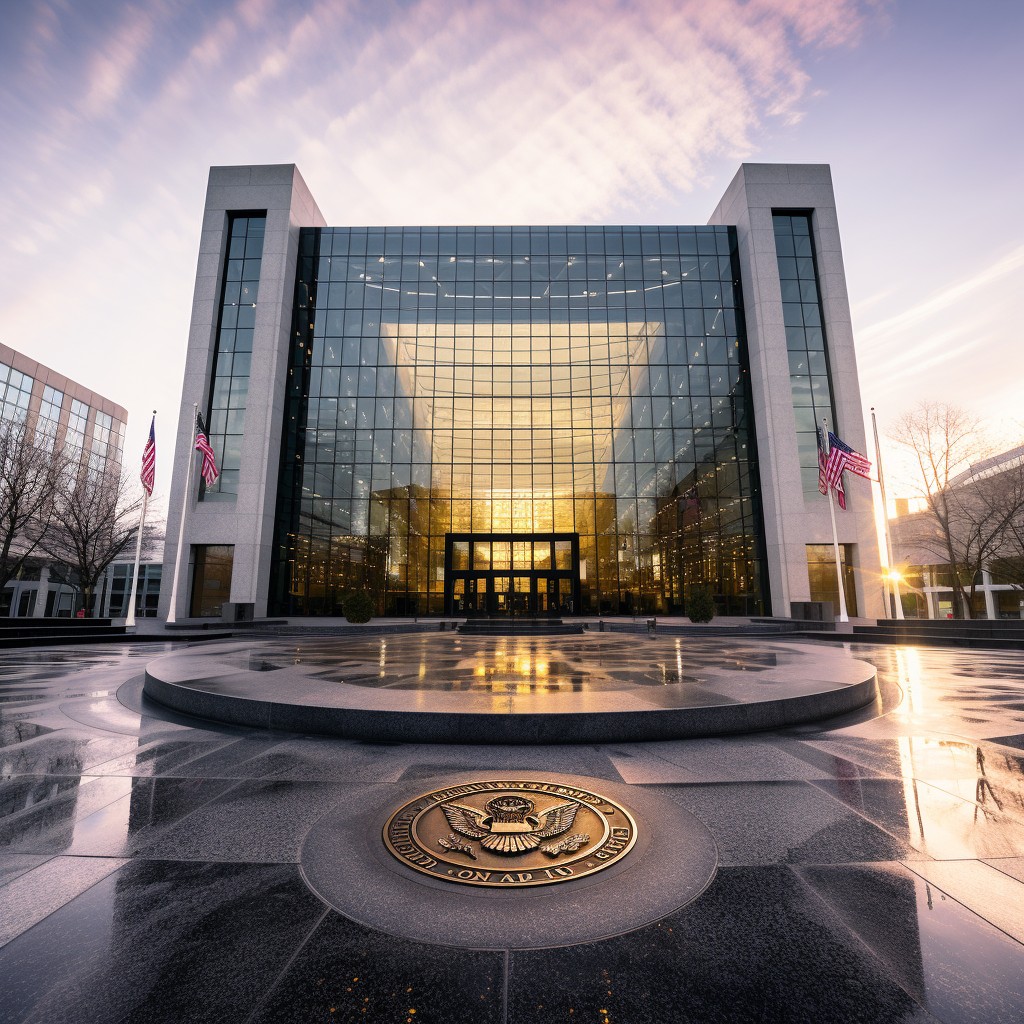As market participants eagerly anticipate the introduction of a Bitcoin Spot Exchange-Traded Fund (ETF), the process of regulatory approval has become a subject of intense scrutiny. Within the United States, the Securities and Exchange Commission (SEC) plays a pivotal role in evaluating and greenlighting financial products, including cryptocurrency-based ETFs.
BTC ETF approval in jeopardy
As the crypto community eagerly anticipates the ETF approval, it is crucial to understand the nuanced considerations and potential stumbling blocks that may arise within the SEC.
These five commissioners, each possessing unique perspectives, backgrounds, and regulatory philosophies, collectively shape the SEC’s stance on cryptocurrency-related investment products.
As it stands, the U.S. Securities and Exchange Commission’s recent swift additional comments to some spot Bitcoin ETF issuers’ S-1 submissions are causing alarm in the crypto market, but people continue to expect a spot Bitcoin ETF approval this week. The final date for the SEC to rule on the Ark 21Shares spot Bitcoin ETF is January 10, which will offer clear signals to the market.
The Crypto Fear and Greed Index has shifted into the “extreme greed” zone as the sector eagerly awaits the approval of a spot Bitcoin ETF.
According to the Crypto Fear & Greed Index, Bitcoin’s market sentiment score is 76 out of 100, the highest since it hovered around its peak price of $69,000 in mid-November 2021.
Every day, the Crypto Fear and Greed Index collects and weighs data from six market key performance indicators to determine market sentiment: volatility (25%), market momentum and volume (25%), social media (15%), surveys (15%), Bitcoin’s dominance (10%), and trends (10%).
As of this writing, the current price of Bitcoin (BTC) is $46,600.85, with $35,182,056,612.62 in 24-hour trading volume. This reflects a price increase of 3.78% over the last twenty-four hours and 3.12% over the previous seven days.
The current valuation of cryptocurrencies on a global scale is $1.8 trillion, representing a change of 4.73% over the last twenty-four hours and 104.02% over the past year. Bitcoin holds a market cap of $916 billion, signifying a crypto market dominance of 50.8%. Stablecoins, meanwhile, have a market capitalization of $135 billion, or 7.46% of the total crypto market capitalization.
Interestingly, experts have warned that a 5-member SEC Commission may delay spot Bitcoin ETF certification. Under 17 C.F.R. Section 201.431, any commissioner, including Gary Gensler, Caroline Crenshaw, Hester Peirce, Jaime Lizárraga, and Mark Uyeda, has the right to request a review and full commission vote, even if a subject has been assigned and approved under delegated authority.
What does section 17 CFR § 201.431 entail?
17 CFR § 201.431 outlines the Commission’s consideration of actions conducted under delegated authority. This regulation allows the Commission to delegate authority for final actions related to the Equal Access to Justice Act in specific cases.
The section includes the scope of review. The Commission can affirm, reverse, modify, set aside, or remand for further proceedings any decision taken under the authority conferred in §§ 200.30-1 through 200.30-18 of the chapter.
Then, there are standards for granting review in response to a petition for review—(1) Mandatory review. After filing a petition for review, the Commission will evaluate any action that would require review under § 201.411(b)(1) if taken by a hearing officer as the initial determination.
Finally, consider how this affects cryptocurrency. Commission review other than in response to a petition for review. The Commission may, on its own initiative, order a review of any action taken according to delegated authority at any time.
However, where one or more parties are involved, such review may not be undertaken more than ten days after the action. The vote of one member of the Commission communicated to the Secretary is sufficient to bring an issue before the Commission for review.
The 5 members who stand to oppose
1. Gary Gensler, appointed by President Joe Biden, assumed the role of SEC Chairman in April 2021. Known for his extensive experience in financial regulation, Gensler has taught courses on blockchain technology and digital currencies at the Massachusetts Institute of Technology (MIT).
Gensler’s stance on crypto regulation is generally considered more knowledgeable and crypto-war. However, his regulatory approach may still prioritize investor protection, market integrity, and adherence to existing securities laws.
2. Hester M. Peirce (Commissioner)
Often referred to as “Crypto Mom,” Hester M. Peirce has been a vocal advocate for embracing innovation in the financial markets. Appointed by President Trump, Peirce’s term extends until 2025.
Peirce has consistently supported the idea of a Bitcoin ETF, emphasizing the importance of providing investors with regulated, easily accessible investment vehicles for cryptocurrencies.
3. Caroline A. Crenshaw (Commissioner)
Appointed by President Trump, Caroline A. Crenshaw joined the SEC in 2019. She previously worked as an attorney specializing in securities enforcement.
Crenshaw’s views on crypto are not as well-documented as those of some other commissioners. Her decisions on a Bitcoin ETF may hinge on a careful evaluation of potential risks and benefits, with an emphasis on regulatory oversight.
4. Jaime E. Lizárraga is an American political advisor and government official who serves as a U.S. Securities and Exchange Commission commissioner. Nominated by President Joe Biden and confirmed by the U.S. Senate, he was sworn into office on July 18, 2022.
Specializing in immigration, financial services, housing, and Latino outreach, Lizárraga has a diverse background. He emphasized the importance of regulating the crypto industry, expressing concerns about its impact on the traditional financial system. In a keynote address at Brooklyn Law School on November 16, 2022, he discussed the need for crypto regulation, describing the industry’s recent challenges as “troubling.”
5. Mark Toshiro Uyeda is an American attorney and government official affiliated with the Republican Party. He was sworn into office on June 30, 2022, nominated by President Joseph Biden and confirmed by the U.S. Senate.
In June 2023, President Biden recently nominated him for a term expiring in 2028, and the U.S. Senate confirmed his second term as SEC Commissioner, extending through 2028.
Uyeda, known for his crypto-friendly stance, began his second term as SEC Commissioner on December 28, 2023.
Uyeda has been actively involved in shaping the regulatory landscape for cryptocurrencies. Notably, he disagreed with the SEC’s denial of Coinbase’s 2022 rulemaking petition, asserting that the existing securities laws framework is insufficient for the crypto industry





